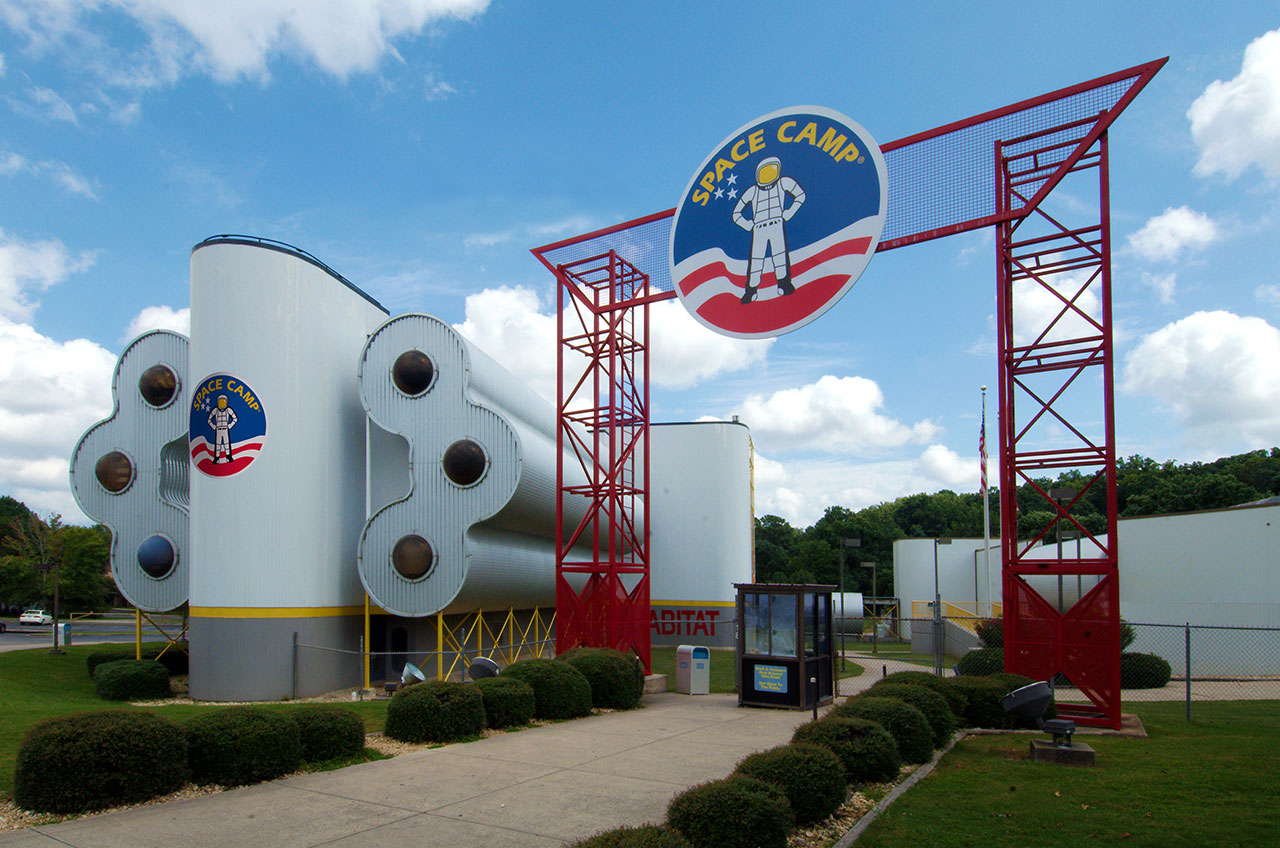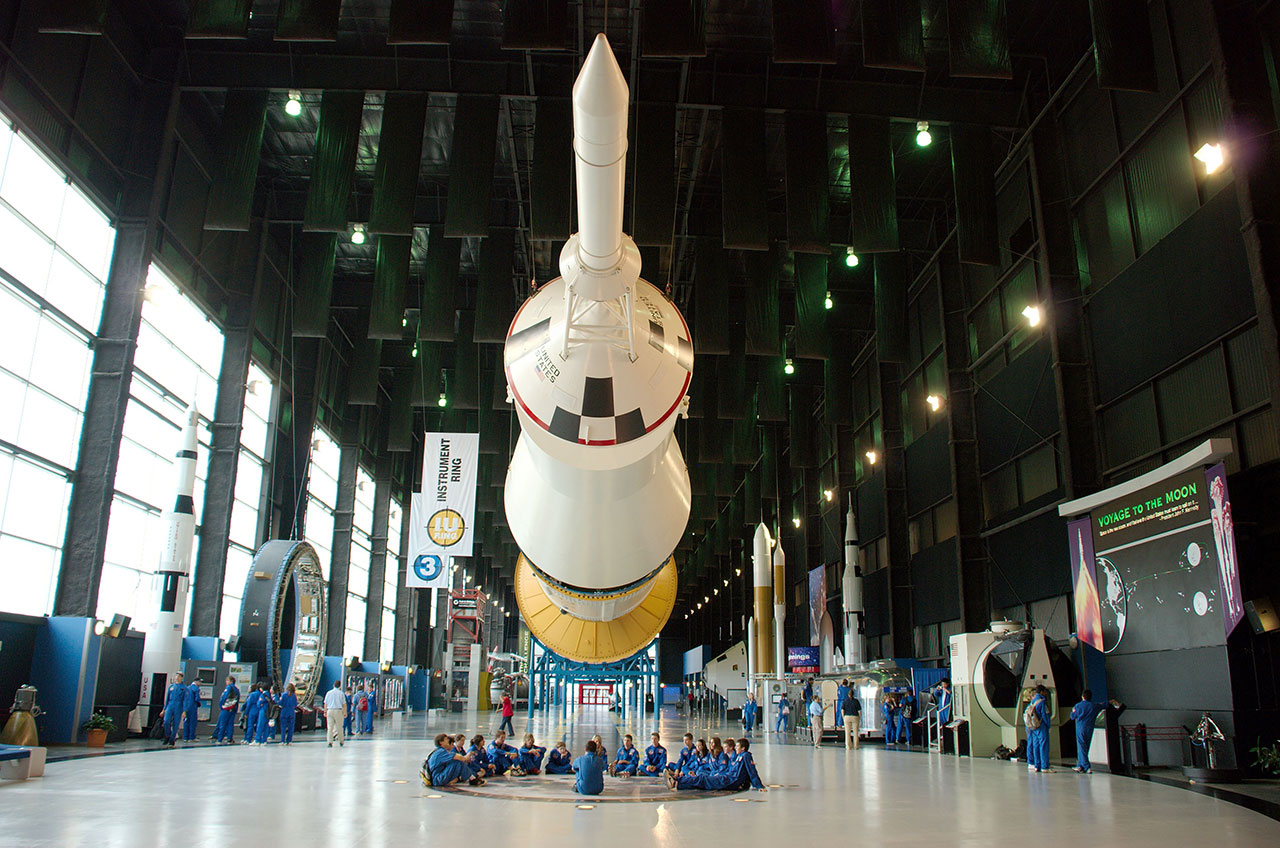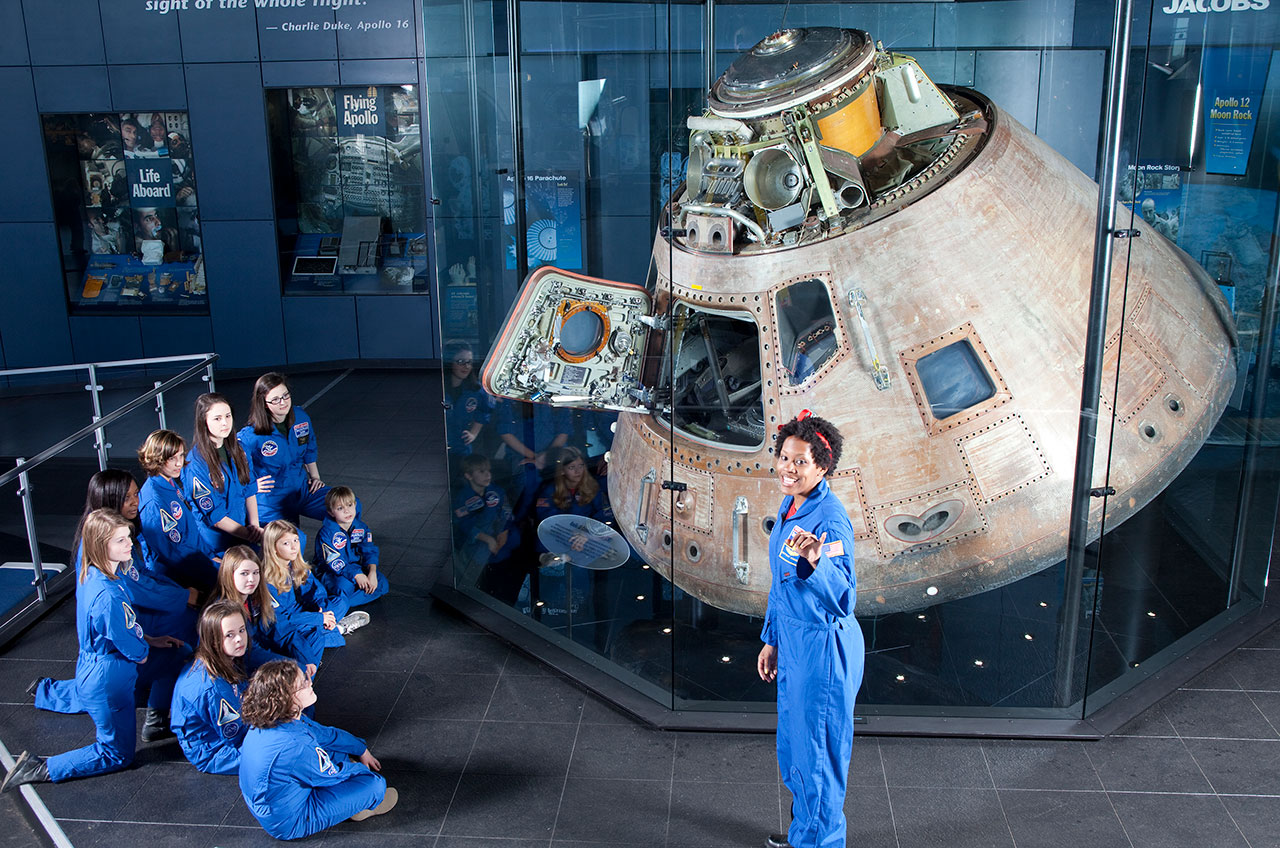Donations needed to 'Save Space Camp' after pandemic shortfall

Space Camp may soon be forced to count down to its final launch.
The U.S. Space & Rocket Center, which has been home to Space Camp since 1982, announced on Tuesday (July 28) that both the museum and the educational astronaut training experience are at risk of permanently closing due to economic shortfalls caused by the coronavirus pandemic. The Huntsville, Alabama center has begun an emergency fundraising effort to avoid having to cease operations before the end of the year.
"The 'Save Space Camp' campaign must raise a minimum of $1.5 million to keep the U.S. Space & Rocket Center museum open past October and to reopen Space Camp in April 2021," center officials said in a statement.
The campaign is seeking donations from Space Camp alumni and the millions of people who have visited the U.S. Space & Rocket Center from around the world in order to continue Space Camp's mission of education and inspiration.
Related: Watch Space Camp launch nearly 5,000 model rockets for Apollo 11 (and seek a world record)

Established in 1970, the U.S. Space & Rocket Center exhibits one of the three remaining Saturn V moon rockets (and a vertical display of a full-scale replica), the Apollo 16 command module that flew to the moon in 1972 and the Pathfinder mock space shuttle, among numerous other artifacts from the history of space exploration.
Space Camp, which shares the campus with the public museum, has graduated more than 900,000 attendees, providing students and adults access to some of the same simulators and training equipment that NASA has used to prepare sending astronauts to space. Among its alumni are a dozen individuals who went on to actually fly into space.
Get the Space.com Newsletter
Breaking space news, the latest updates on rocket launches, skywatching events and more!
The rocket center had to temporarily close on March 13 due to the growing spread of the coronavirus. The museum, which serves as the visitor center for NASA's Marshall Space Flight Center and is a Smithsonian Affiliate, reopened in late May, but with far fewer visitors than its normal attendance. Space Camp did not reopen until June 28, and then with only 20% of its usual enrollment.
Related: 'Space Warriors' Hallmark movie features Space Camp training
With limited admission from international students and school groups this fall and winter, Space Camp will again close for weeklong camp programs in September.
Facing a loss of $28 million, or about 66% of its annual revenue, the rocket center was forced to lay off one third of its full-time employees and was unable to employ an additional 700 part-time employees who typically work in all areas of Space Camp and the museum. The majority of the remaining full-time employees have been furloughed since April.
While the center supports NASA and is an official visitor center for the Tennessee Valley Authority, it receives no funding from the space agency or any other federal budget. Ninety percent of its annual revenue is from museum and Space Camp attendance; an additional 5% comes from donations and 5% from the State of Alabama.
Related: 'First Man' Blu-ray bonus feature takes Ryan Gosling to Space Camp (exclusive clip)

As a quasi-governmental entity, the rocket center and Space Camp have not been able to qualify for federal, state or local emergency assistance.
"We firmly believe that failure is not an option, and we are turning to the public for support," the center's leadership said. "It is important to save Space Camp, not just for the foundation it has laid for hundreds of thousands of successful careers in aerospace, engineering, science, education and other fields, but also for the economic impact the program and the U.S. Space & Rocket Center provide."
In a normal year, the rocket center generates $120 million in annual revenue for the state of Alabama and serves as a magnet for visitors to Huntsville. The rocket center has been the top paid tourist attraction in the state for seven straight years.
"The mission of Space Camp and U.S. Space & Rocket Center is too important. It must continue," the museum officials said.
Follow collectSPACE.com on Facebook and on Twitter at @collectSPACE. Copyright 2020 collectSPACE.com. All rights reserved.
Join our Space Forums to keep talking space on the latest missions, night sky and more! And if you have a news tip, correction or comment, let us know at: community@space.com.

Robert Pearlman is a space historian, journalist and the founder and editor of collectSPACE.com, a daily news publication and community devoted to space history with a particular focus on how and where space exploration intersects with pop culture. Pearlman is also a contributing writer for Space.com and co-author of "Space Stations: The Art, Science, and Reality of Working in Space” published by Smithsonian Books in 2018.In 2009, he was inducted into the U.S. Space Camp Hall of Fame in Huntsville, Alabama. In 2021, he was honored by the American Astronautical Society with the Ordway Award for Sustained Excellence in Spaceflight History. In 2023, the National Space Club Florida Committee recognized Pearlman with the Kolcum News and Communications Award for excellence in telling the space story along the Space Coast and throughout the world.










